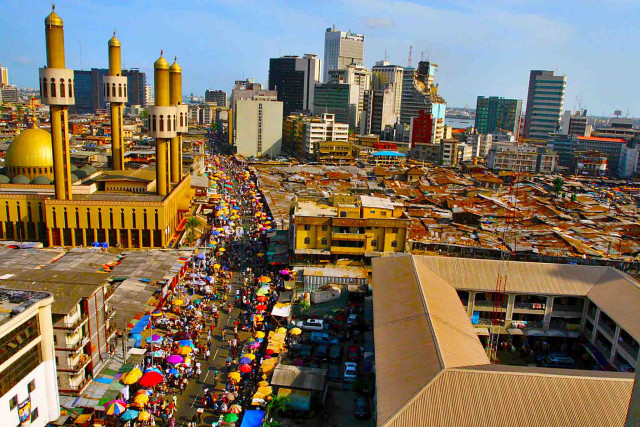The private sector business environment in Nigeria saw a slight improvement in May, with the Purchasing Managers’ Index rising to 52.1 points from 51.1 points in the previous month.
This marks the second-highest reading for the year, with the highest being in January at 54.5 points.
According to the monthly Stanbic IBTC Bank Nigeria PMI released on Tuesday, inflationary pressures eased but remained significant, leading to sharper increases in output and new orders.
Data from about 400 purchasing managers in private sector companies indicated a growth pickup in the sector in May. However, the rates of expansion remained slower than the respective series averages due to high prices constraining demand.
The Head of Equity Research West Africa at Stanbic IBTC Bank, Muyiwa Oni, noted that the headline PMI increased to 52.1 points in May from 51.1 in April, signifying that Nigeria’s private sector activity maintained a better footing even though the rate of expansion remained slower than the series average due to high prices limiting demand.
"However, the rate of increase inpurchase costs and selling prices was the slowest in a year, leading to a more significant rise in both output and new orders compared to April. The Nigerian economy saw a moderate growth of 2.98 percent year-on-year in Q1:24, down from 3.46 per cent year-on-year in Q4:23.
In terms of structure, the services sector continues to drive the economy, accounting for 83.2 percent of the real GDP growth, while industries and agriculture contributed 15.5 percent and 1.3 percent, respectively.
Oni said that growth in interest rate-sensitive sectors slowed down, except for the manufacturing sector, which saw a modest improvement to 1.49 percent year-on-year from 1.38 percent year-on-year in Q4:23, although still below the three-year average growth of 2.40 percent year-on-year.
He said: "The headline PMIs for April and May indicate a slight improvement in private sector activity in Q2:24, although it still lags behind Q2:23. We anticipate that domestic demand will remain below the historical average, worsened by inflationary pressures, which are expected to peak in May.
"Furthermore, the non-oil sector will continue to be negatively affected by the exceptionally high interest rates.
However, due to anticipated growth in the oil sector driven by a favourable base-effect, the overall economy is projected to grow by 3.51 percent year-on-year in real terms in Q2:24."
He also stated that there was an increase in new orders in May, continuing the trend of growth for six months. It was observed that business activity in the month under review reached its highest level since January.
He said: "Growth was evident in all four monitored sectors, with the most significant increase seen in manufacturing. Reports indicated that customer demand was improving and there were signs of inflationary pressures easing."
"In May, the cost of purchases continued to rise quickly due to currency weakness, but the inflation rate dropped to a one-year low. Selling prices also saw a similar trend. Staffing levels remained stable, but employee expenses increased as employers tried to help workers cope with higher living costs.
“Companies increased their purchasing activity in anticipation of future workloads due to improved customer demand. The report also noted that suppliers' delivery times have been getting shorter since March 2023, attributed to factors such as prompt payments and good vendor arrangements in a competitive environment.
“Despite stronger output and new orders in May, business confidence decreased to its lowest level since February. However, over 43 percent of respondents were still optimistic about future output, citing investment plans and business expansions, including opening new branches.
"The PMI, compiled by S&P Global, gathers responses from purchasing managers in around 400 private sector companies across various industries."




















